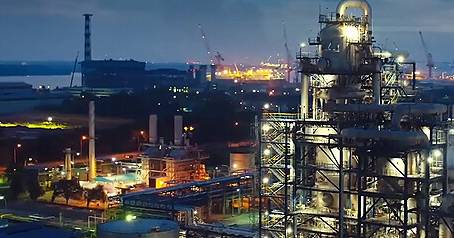Ara . 28, 2024 12:47 Back to list
polypropylene board
The Versatility and Applications of Polypropylene Board
Polypropylene board, often referred to as PP board, is a type of thermoplastic sheet made from polypropylene, a polymer known for its resilience, lightweight nature, and chemical resistance. This innovative material has gained widespread popularity across a variety of industries due to its unique properties and adaptability. In this article, we will explore the characteristics, production methods, advantages, and various applications of polypropylene boards.
Characteristics of Polypropylene Board
Polypropylene boards are characterized by their remarkable strength-to-weight ratio. They are lightweight yet robust, making them ideal for projects where ease of handling is a priority. The boards are also resistant to moisture, chemicals, and UV radiation, which enhances their durability in both indoor and outdoor environments.
Additionally, polypropylene boards are non-toxic and recyclable, aligning with growing environmental considerations in modern manufacturing. Their surface can be easily printed on or laminated, which allows for customization with graphics and branding.
Production Methods
The production of polypropylene boards typically involves extrusion or compression molding. In the extrusion process, polypropylene pellets are heated until they melt and are then forced through a die to create sheets of desired thickness. This method allows for continuous production and is efficient in terms of material usage.
Compression molding, on the other hand, involves placing polypropylene pellets into a mold and applying heat and pressure until the material takes the shape of the mold. This method is often used for thicker, more complex designs but is less common for standard board production.
Advantages of Polypropylene Board
The appeal of polypropylene board lies in its array of advantages
1. Lightweight Being lighter than many other materials, it is easier to transport and handle. 2. Durability Its resistance to wear, impact, and chemicals ensures longevity in various applications. 3. Water Resistance PP boards do not absorb water, making them ideal for humid or wet environments. 4. Cost-Effective The production cost of polypropylene boards is relatively low, making them an economical choice for various projects. 5. Easy to Work With The boards can be cut, shaped, and joined using standard tools, allowing for flexibility in design. 6. Recyclable As environmental concerns rise, the ability to recycle polypropylene reduces waste and supports sustainability initiatives.
polypropylene board

Applications of Polypropylene Board
Due to their versatile nature, polypropylene boards find applications across multiple sectors
1. Signage and Displays Their ability to be printed on makes them a popular choice for signage, point-of-sale displays, and promotional materials. They offer excellent visibility while remaining lightweight and easy to install.
2. Packaging In the packaging industry, PP boards can be used for creating durable packaging solutions, such as containers and trays. Their moisture and chemical resistance make them suitable for a variety of products, including food items.
3. Construction The construction industry utilizes polypropylene boards for temporary structures, wall panels, and as lightweight alternatives for traditional materials. Their resistance to moisture makes them useful in environments where traditional wood would fail.
4. Automotive In the automotive sector, PP boards are often employed for interior components due to their lightweight properties, contributing to overall vehicle performance by reducing weight.
5. Medical Equipment Their non-toxic nature and ease of cleaning make polypropylene boards suitable for various medical applications, including trays, partitions, and equipment housings.
6. Arts and Crafts Artists and DIY enthusiasts often use polypropylene boards for creative projects, including model making and mixed media art, taking advantage of their easy-to-work characteristics.
Conclusion
In conclusion, polypropylene boards represent a crucial innovation in material science, offering a combination of durability, versatility, and environmental friendliness. Their various applications across industries highlight the endless possibilities they provide for modern manufacturing and design. As technology progresses and sustainability becomes more paramount, it is likely that the use of polypropylene boards will continue to grow, further cementing their place as a key player in material solutions. Whether in construction, packaging, or signage, the potential of polypropylene board is as expansive as it is beneficial.
-
Premium HDPE Water Supply Pipes: Durable & Leak-Proof
NewsAug.03,2025
-
Premium PVC-M Water Supply Pipe - Durable & Efficient
NewsAug.02,2025
-
Premium PP Welding Rod: GPT-4 Turbo Enhanced
NewsAug.01,2025
-
HDPE Drainage & Irrigation Pipe - Durable, Efficient Solutions
NewsAug.01,2025
-
Premium PVC Transparent Pipe: Durable & Clear Solutions
NewsJul.31,2025
-
High-Quality UPVC Electrical Pipe for Safe Wiring Solutions
NewsJul.30,2025

